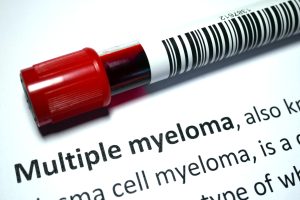
24 RCCA Physicians Named to 2025 Castle Connolly ‘Top Doctors’ List for Exceptional Cancer Care
A cancer diagnosis can be frightening. An individual may worry about how, or if, they will get better. The future becomes unclear and the strain
HIPAA Alert: Potential Data Breach Learn More
Questions on Oncology, Hematology and/or Infusion Clinical Services due to COVID-19 Crisis – CALL 833-698-1623
Important Information for Our Patients Regarding the Coronavirus.
RCCA Providing Area Cancer Patients with Access to Care During Coronavirus Outbreak
RCCA Offering Patients Virtual Visits During Coronavirus Pandemic
The prostate is an organ of the male reproductive system responsible for producing the seminal fluid that sustains and transports sperm. Cancerous cells may develop in the prostate gland, leading to cancer. Prostate cancer is the second most common cancer in men in the United States and the most common cancer among older men, excluding skin cancers. While many risk factors for prostate cancer cannot be changed – such as a man’s age or racial/ethnic background – others can. In this article, Regional Cancer Care Associates (RCCA), one of the nation’s largest networks of oncology specialists, reviews risk factors for the disease and steps men can take to reduce their risk.

Medical researchers have identified several risk factors that may increase a person’s risk for developing prostate cancer. Risk factors do not guarantee that a person will develop a disease, and many people with one or multiple risk factors for prostate cancer are never diagnosed with the condition. Conversely, some men with prostate cancer have no known risk factors for the disease.
Prostate cancer risk factors can be divided into two categories – non-modifiable and modifiable. The first type, such as age, are beyond a man’s control, while modifiable risk factors are – at least to some degree – within a man’s ability to control. Non-modifiable risk factors include:
Prostate cancer is most common among older men. Although younger men can develop prostate cancer, the risk increases with age.
African-American men have the highest risk for prostate cancer of any racial or ethnic group. They are also more likely to die from the disease than white men. Prostate cancer is more common in North America, northwestern Europe, Australia, and the Caribbean than in other parts of the world.
Genetic changes play a role in the development of prostate cancer. These changes may be inherited or acquired. Inherited genes are those passed down to a person by his or her parents. Individuals with Lynch syndrome or BRCA1 or BRCA2 genes are at a higher risk for prostate cancer, as are patients with other, less-common genetic syndromes.
Acquired genetic mutations develop over a lifetime. These changes occur in cells stemming from an originally mutated cell. Most genetic mutations related to prostate cancer are acquired.
If a man’s father or brother has or had prostate cancer, the man’s risk for prostate cancer is more than double the average risk. If more than one relative has or had prostate cancer, or if any of those people were relatively young when the disease developed, the risk also is greater. Researchers have found that having a brother with prostate cancer poses an even bigger risk than having a father with the disease. Still, most men with prostate cancer do not have a family history of the disease.
Additional factors may heighten prostate cancer risk, although scientists have not determined the extent to which many of these factors increase risk. Patients have more control over these risk factors than the preceding factors. They include:
Although the link between prostate cancer and many modifiable risk factors is less clear than the impact of non-modifiable risk factors, men can still make lifestyle changes to lower their risk. Consider the following strategies:
The following eating habits may reduce the risk of prostate cancer:
Exercise is important for all people. Beyond helping to manage weight, it can reduce inflammation and boost the immune system. After consulting their physician, people should engage in exercise that suits their physical fitness level.
Quitting smoking has many health benefits, including reducing the risk of prostate cancer. People may also consider stopping drinking alcohol or at least significantly lowering their alcohol intake.
The scientific evidence regarding whether various vitamins and supplements can help reduce prostate cancer risk is rapidly evolving and unsettled, with one study sometimes contradicting the findings of studies conducted only a few years before. For example, fairly recent studies of Vitamin E suggested that it lowered the chances of developing prostate cancer. Subsequent research suggested the opposite — that individuals taking Vitamin E supplements were at a slightly higher risk for prostate cancer.
Similarly, folic acid is a type of vitamin B found in several foods and also sold as a supplement. The base of folic acid is folate, which is found in green vegetables and whole-grain breads. Research indicates that adequate intake of folate from foods can lower the risk of prostate cancer, but that taking folic acid supplements may increase risk for the disease.
Meanwhile, research into the efficacy of isoflavone (soy proteins) in reducing the risk of prostate cancer is promising. The bottom line: Talk with a physician before taking any vitamins, supplements, herbs, or other substances with the goal of reducing risk for prostate cancer or other disease.
Prostate cancer often does not cause any symptoms in its early stages. Further, even when they are present, many of the symptoms of prostate cancer are non-specific, meaning that they can be caused by any one of a number of conditions, most of which do not involve cancer. For example, difficulty urinating may be caused by an age-related, benign increase in the size of the prostate gland.
Many symptoms occur because of the prostate’s location in the body. As a tumor grows, it may press against and obstruct the bladder and urethra, affecting urination. Prostate cancer may also inhibit sexual activity because the prostate gland is integral in semen production. The following are signs and symptoms that may suggest prostate cancer:
As prostate cancer advances, symptoms may appear in other areas of the body. Pain is common in areas where cancer has spread (metastasized in medical terminology) and bone is the most frequent site for prostate cancer metastases. Pain in the pelvis, hips, and spine, as well as bone fractures, can result when prostate cancer spreads to the bone. Metastases might also compress nerves, causing numbness and weakness. Fatigue and sudden weight loss may also occur with prostate cancer.
Symptoms may differ depending on the type of prostate cancer. The various prostate cancer types include:
The five-year relative survival rate for prostate cancer is particularly high compared to other cancers, but that rate is highest for prostate cancers that are detected and treated in their earliest stages.
If the cancer is localized (has not spread outside the prostate) or regional (has spread only to nearby structures or lymph nodes), the 5-year survival rate is greater than 99%. However, if prostate cancer is distant (has spread to parts of the body further from the prostate), this number drops to 32%.
For this reason, early detection is essential for the best outcomes. Patients with any of the risk factors outlined above or who are experiencing the symptoms of prostate cancer should contact their doctors for evaluation.
The team of experienced, compassionate medical oncologists at RCCA offers multiple prostate cancer treatments. Considering the individual’s overall health, cancer stage, and other factors, RCCA medical oncologists develop a personalized treatment plan for each patient. Treatment options include:
Patients can receive cutting-edge therapies and comprehensive, compassionate care from the committed team of medical oncologists and hematologists at Regional Cancer Care Associates. With 22 community-based locations in New Jersey, Connecticut, Maryland, and throughout the Washington, D.C. area, RCCA offers outstanding care close to home. Contact RCCA to learn more about prostate cancer treatment and other oncology services, or request an appointment today.
For more information or to schedule an appointment,
call 844-346-7222. You can also schedule an appointment by calling the RCCA location nearest you.

A cancer diagnosis can be frightening. An individual may worry about how, or if, they will get better. The future becomes unclear and the strain

Multiple myeloma (MM) is a rare type of blood cancer that often develops without early symptoms, making awareness of risk factors essential. Regional Cancer Care

A cancer diagnosis can bring a wide range of emotions, from fear and stress to sadness and hope. These feelings are a natural part of

Regional Cancer Care Associates is one of fewer than 200 medical practices in the country selected to participate in the Oncology Care Model (OCM); a recent Medicare initiative aimed at improving care coordination and access to and quality of care for Medicare beneficiaries undergoing chemotherapy treatment.